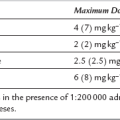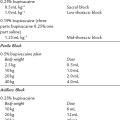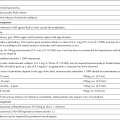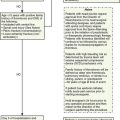Are you noticing a change in your teen’s behavior? Maybe they’re stressing about their grades and academic demands?
Many teens today face immense pressure to excel academically. As parents, it’s crucial to understand that while academic success is important, it shouldn’t come at the expense of your child’s mental health.
By encouraging open communication, promoting a balanced lifestyle, and focusing on the effort involved, not the outcome, you can empower your teen to cope healthily with academic stress.
This is where professionals who’ve completed online school counseling programs can also help. These specialists can provide clear guidance and support to help your teen manage the demands of high school. With the right strategies, you can help your child thrive, both academically and personally.
Let’s take a look at ways you can identify and help your teen cope with the demands of succeeding at school and in their lives.
Sources of Stress in Adolescents and Teens:
Being a teenager today is no walk in the park. The struggle can feel never-ending – rigorous academics, extracurriculars, shifting social dynamics, and the physical/emotional rollercoaster of puberty. The pressure to excel, maintain a stellar GPA, and get into a top university weighs heavily.
Balancing schoolwork with activities, part-time jobs, and family responsibilities feels like a constant struggle. On top of that, they’re navigating body image issues, changing hormones and the stress of building new friendships. It’s no wonder so many teens feel overwhelmed!
Recognize the Signs of Stress
As a parent, it’s essential to be on the lookout for signs that your teen is feeling stressed.
Some indicators include:
• Mood swings and irritability – Watch for increased frustration, anger outbursts, or your teen becoming overly sensitive or argumentative.
• Behavioral changes – Notice if your child starts withdrawing from friends, family, or activities they once enjoyed.
• Sleep troubles – Difficulty falling or staying asleep, insomnia, restlessness, or excessive sleeping could be stress-related.
• Neglecting responsibilities – Are chores, homework, or personal hygiene being neglected?
• Fluctuating appetite—Stress could cause significant changes in eating habits, like a lack of appetite or overeating.
Open Communication is Key
It’s important to create a safe space where your teen feels comfortable opening up about the academic or other pressures they face.
Listen without judgment and validate their feelings – let them know it’s okay to feel overwhelmed or anxious sometimes. Encourage them to share their fears, frustrations, and concerns freely. When they feel heard and understood, it builds trust and helps you better address the underlying issues. Avoid minimizing their worries or rushing to offer solutions. Instead, respond with empathy and reassurance.
Seek Professional Support
If your teen is struggling with excessive stress and anxiety due to academic pressure, don’t be afraid to seek professional help. Involving a qualified mental health professional, such as a counselor or therapist, can be a game-changer.
They can develop coping strategies tailored to your child’s unique needs. They help establish healthy study habits, manage stress effectively, and strike a balance between academics and overall well-being. Seeking professional support is a sign of strength and can make a world of difference.
Focus on Effort, Not Results
Instead of obsessing over grades and test scores, shift the conversation to celebrating the effort they put into their studies. Commend their dedication through occasional late nights hitting the books and persevering when concepts get tough.
This encourages a growth mindset where the journey of learning is valued over perfection or outperforming others. Praise their commitment, resilience, and willingness to tackle difficult material—even when results fall short.
Encourage a Balanced Lifestyle
While academic success is essential, it shouldn’t come at the cost of your teen’s overall well-being.
Encourage them to maintain a balanced lifestyle by prioritizing self-care activities alongside their studies. Things like regular exercise, pursuing hobbies, and spending quality time with friends can help them manage stress and recharge their minds.
A healthy work-life balance prevents burnout and maintains a positive outlook.
Promote Stress Management
To help your teen better manage the stress of academic pressure, introduce them to some healthy coping tools.
Simple practices like deep breathing exercises, mindfulness meditation, and journaling can be incredibly powerful. Breathing techniques promote relaxation and presence. Meditation builds focus and calm. Journaling provides a creative outlet to process emotions.
Encourage your teen to take breaks from studying to engage in these practices—they’ll return refreshed and in a clearer headspace.
Navigating academic pressure can be challenging for teens, but with your support and understanding, they can develop healthy coping strategies. Remember, their well-being is the top priority. Encourage open communication, remind them to focus on their effort, not the outcome, and seek professional help. By guiding your child through this challenge, you’ll empower them with essential life skills that will serve them well beyond the classroom. After all, the lessons learned in managing stress will serve them well throughout their lives.





